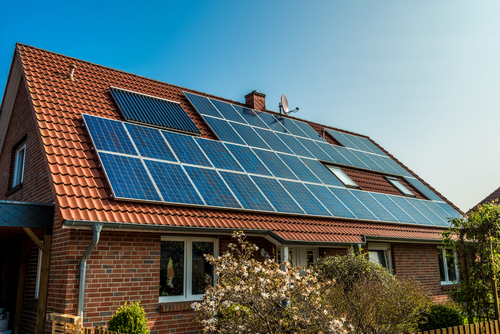Solar power has become increasingly popular in recent decades. However there is a constant counter argument to solar power installations. Namely, that the investment into solar will not break even or provide benefit to the homeowner for many years. We wanted to write up a quick guide on solar power in Massachusetts in 2021.
How Much Is Solar Power Worth in Massachusetts
Solar power’s value is based on the costs of electricity for your home. If your home doesn’t generate large utility bills, it will take even longer for the investment into solar to pay off. The first step in researching solar is reviewing your existing electric bill. The higher your bill is the more likely you are to benefit from changing to solar. That being said energy costs fluctuate state to state, home to home, and year to year. It isn’t a simple formula of how much do you pay/year as what you paid in 2020 probably differed from 2019 for a variety of reasons.
Consider The Presence of Sunlight in Massachusetts
Solar power relies on sunlight. Up here in Massachusetts, we are at two significant disadvantages compared to a state like Arizona. First, because we are so far north of the equator hours of sunlight per day vary greatly. In the summer our days are much longer than our southern counterparts, but in the winter are days are shorter. Additionally, it is colder in our winters and if your heat is electric, you will likely burn through any solar power generated and still need to use your regular energy to keep your home warm. Additionally, you need to consider your unique property. If trees, buildings, or terrain decrease your sun exposure you will also decrease the value of your solar power.
The Cost Of Solar Power
When researching the cost of solar power, you need to consider the driving forces of that cost. The majority of solar power costs are upfront. The panels as well as installation can easily cost 15,000 to 25,000 dollars. Although there are loan programs for many homes this cost is too high. However, there are some government incentives, including tax credits from the federal government. This can help decrease costs, but may not be enough.
Making The Decision: Is Solar Worth It?
At present, the primary benefit of solar power is still the environmental side of the picture. Deciding on whether or not there is a valuable return on investment for your home should be based on comparing costs, tax breaks, loans, against the power you are using each year and the presence of sunlight where you live. Some homeowners are still waiting for the solar panel cost to come down further before investing. It will be interesting to see how solar costs change over the coming years. At this point, it may not be the right decision to get solar here in Massachusetts unless you are using significant power. For this reason solar in Massachusetts may be best suited for businesses. Learn more about alternative power by clicking here or by contacting us.

